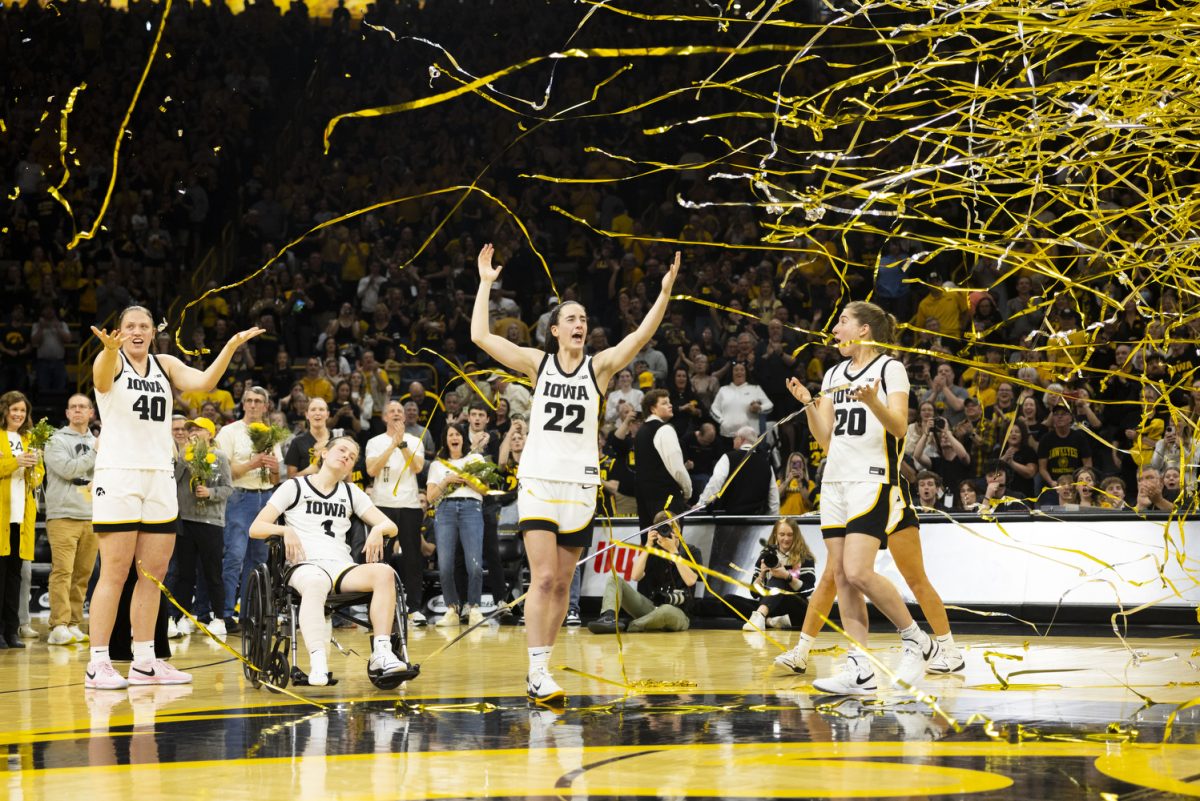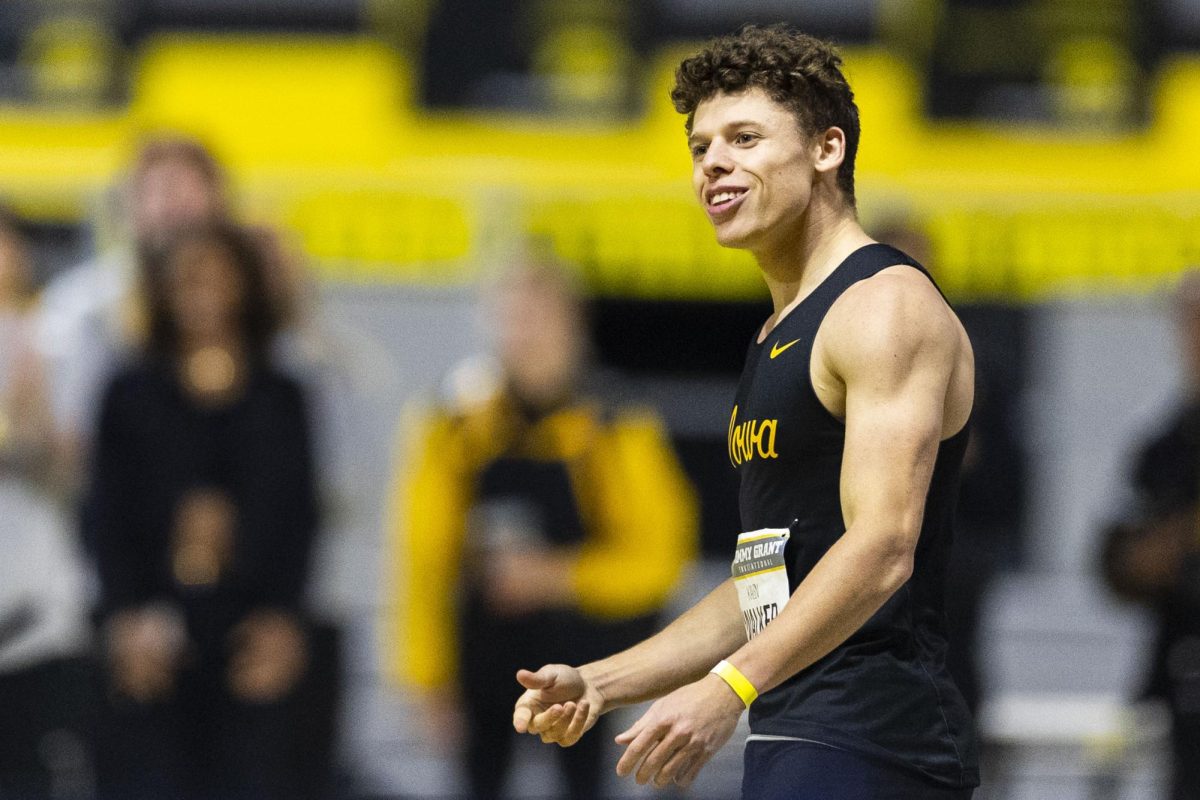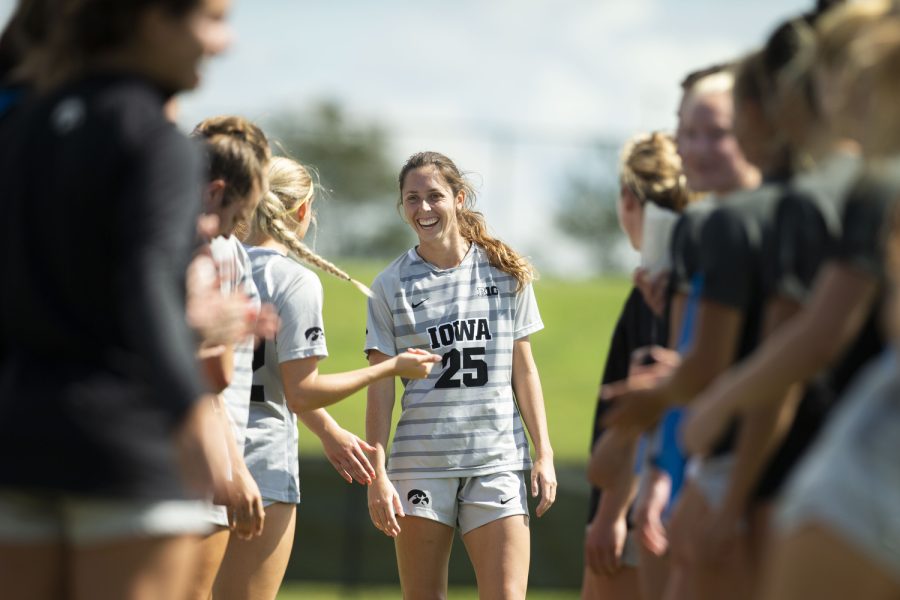If an Iowa high-school athlete is concussed playing a sport during the next academic year, Andy Peterson wants her or him to be informed about the injury.
Peterson, a pediatrician and sports-medicine physician, was one of four medical professionals on hand Tuesday night in the Karro Athletics Hall of Fame to discuss concussion symptoms, concussions themselves, and the methods used to treat an athlete who may have a concussion.
"I think recognition is probably the biggest barrier right now," Peterson said. "Kids recognizing when they are concussed, coaches recognizing when kids are concussed, and then [health-care] providers — who care for kids with concussions — recognizing when kids are able to return to play safely."
Joining Peterson were three other members of the UI sports-medicine community — George Phillips, Matthew Doyle, and Terry Noonan. All four had experience dealing with concussed athletes at either the high-school or college levels.
The roughly 90 people in attendance saw Doyle demonstrate the Sport Concussion Assessment Tool 2, a procedure used on athletes who may be concussed. The tool tests an athlete’s memory, balance, and other areas that will help lead to a diagnosis.
The seminar coincided with the Youth Sports and Concussions bill, which became law July 1.
The law calls for all coaches, students, and parents or guardians of students in grades seven through 12 to be educated on the risks, signs, and symptoms of a concussion.
Furthermore, the law mandates that athletes who have been concussed receive written clearance from a certified health-care provider before the athlete is allowed to return.
Phillips made the law a primary focus of his portion of the seminar.
"It is a great start," said Phillips, a UI pediatric sports-medicine specialist. "It’s going to help parents and athletes have a discussion about the importance of reporting symptoms when an injury happens, and — if the rules of the law are followed — it will really make sure that any athlete who has had a possible concussion get seen by a licensed health care provider before they even go back to practice."
One of his main concerns with the law, however, was the lack of coverage for younger athletes.
"For instance, here now in Iowa City, we have kids playing tackle football on fifth- and sixth-grade teams," he said. "They can suffer concussions just like any other patient, but they are not bound by the really good public-health rules that are set forth in this law."
Noonan, the director of the Iowa Athletics Training Services, compared what the new law calls for with what the university does in terms of protocol for concussed Hawkeye athletes.
"The concussions are going to occur, [but] the signs and symptoms are going to be similar to a youth, as opposed to a high-school or a college athlete," Noonan said. "We need to guard against what happens and have a medical professional, hopefully, be in the area to determine if that athlete can return."






